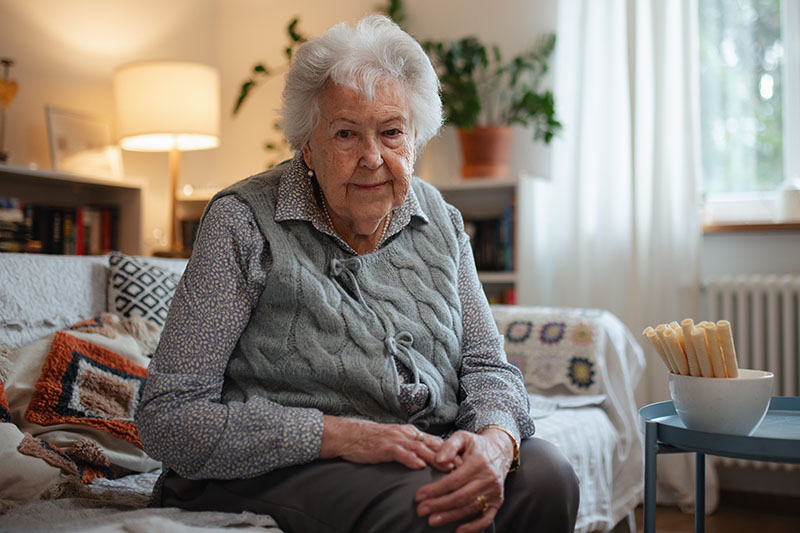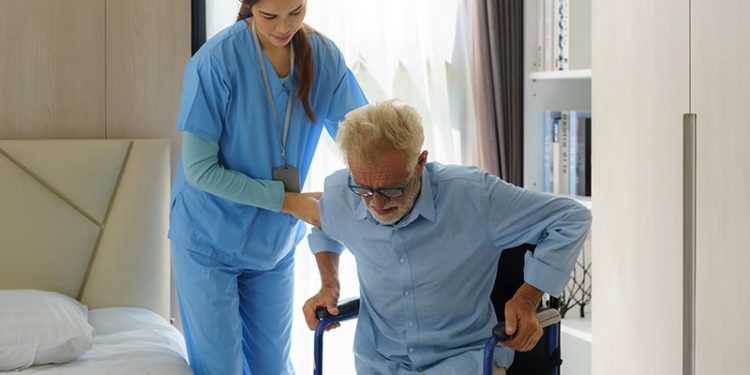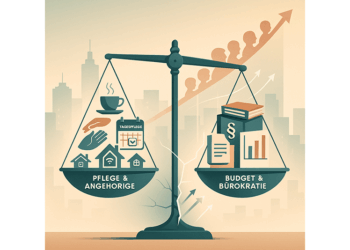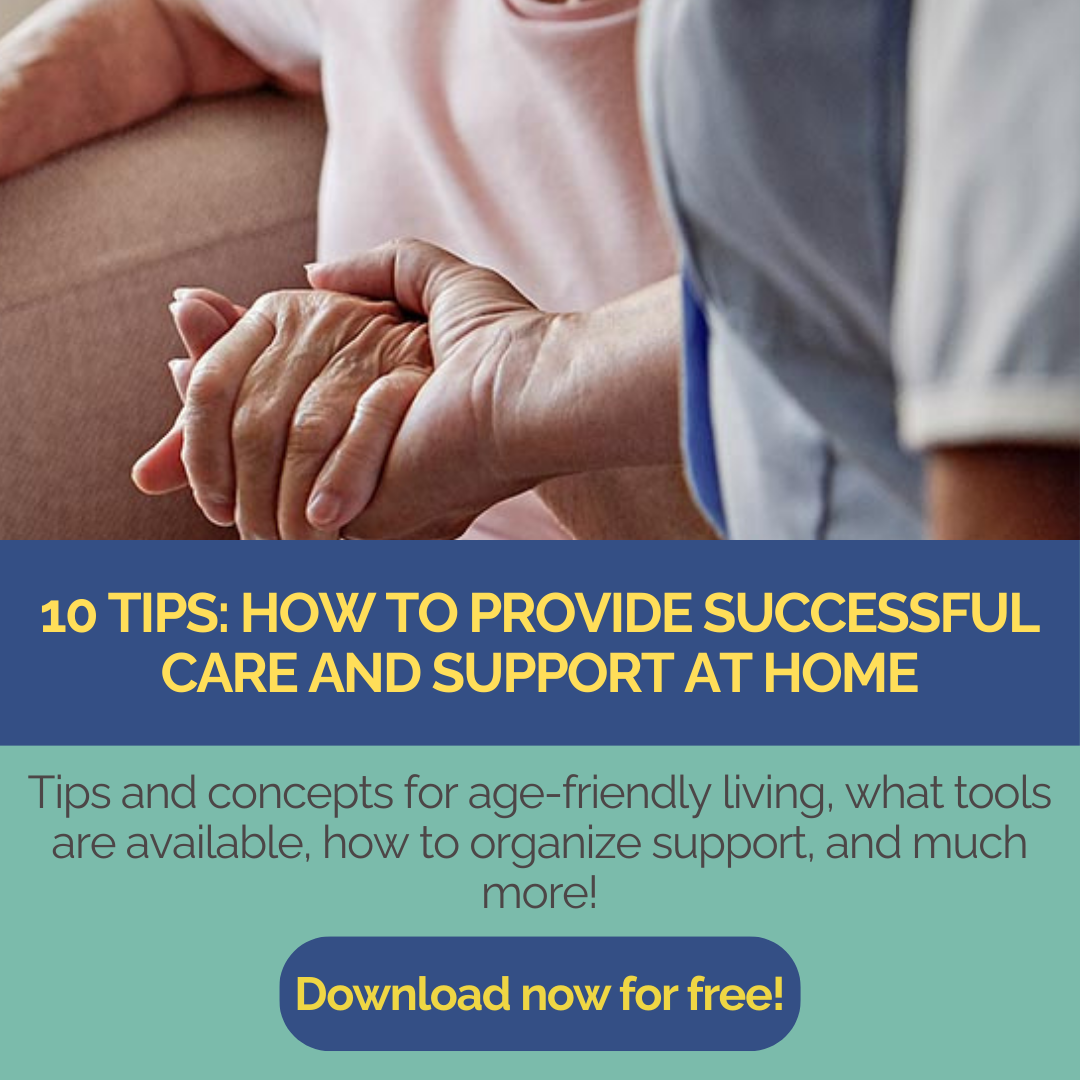Dieser Beitrag ist auch verfügbar auf:
Deutsch
The HDI Pensioner Study 2025 reveals that 57% of the more than 1,000 respondents aged between 63 and 70 are at least partially concerned about poverty in old age. In addition to financial insecurities, the survey also reveals an often underestimated emotional burden for many older people: More than half (53 percent) of respondents fear they will become a burden in old age. Here’s the bad news: Care is mainly provided at home. And not in the future, it’s already a reality today. A comment by Anja Herberth.
What will happen to me when I’m old? This concern is particularly high among those who live alone – as many as 37% of retirees live without a partner or family, especially in rented accommodation. Almost half (49%) of all retirees surveyed fear that they will one day need nursing care – but 60% have not made any provision for this.
The social network that was once taken for granted has become fragile for many today. We live in a world in which individuality and self-realization have become central values. Traditional family structures and role models are dissolving and changing, mobility has become a matter of course. But this freedom also comes at a price – especially when it comes to care and support in old age.
Individualization stands in the way of the necessary networking
Just today, in a conversation with a German organization, I heard a sentence that got me thinking: the necessary networking and involvement of the family and the neighbourhood in care is countered by the individualization of society. According to the HDI Pensioner Study, almost three quarters (74%) of those surveyed have children, but only a small proportion actually count on their support. 56 percent do not expect their children to care for them or actively support them in old age.
There are many reasons for this: physical distance, their own workload, lack of resources. The result is a feeling of isolation – especially in a phase of life in which the closeness, support and care of the family are not only particularly important. Policymakers are assigning care and support in old age to the family. And this has not yet reached them.

The consequences of demographic change are having an impact
This development is due to a combination of a shortage of skilled workers and money combined with demographic change. The OECD sees 2025 as the year in which the continuous increase in the working-age population will stop and begin to decline. In other words, we now have two generations in retirement (the very old and their children – the baby boomer generation) and far too few skilled workers to look after these people. And if we had enough skilled workers, there would still be too little money to pay them. There are also fewer and fewer contributors due to demographic change.
The shift in responsibility for care to families is linked to the ever-increasing personal contribution that has to be paid for care. This is confirmed by a survey conducted by the Association of Statutory Health Insurance Funds (vdek): A person in need of care now has to pay an average of €3,108 each month in the first year in a home. Fewer and fewer people can afford a place in a nursing home, and those who already live in a facility will, according to this survey, “have to go to the social welfare office.”
This reads very similarly in Austrian surveys: According to a study by the Institute for Advanced Studies (IHS), private healthcare expenditure is increasing for Austrian households and is in some cases difficult to manage. On the one hand, coverage is still good, but it is “becoming less favorable for more households.” In other words: there is a creeping development, more and more households are affected. Currently, 2.8% of households are impoverished or at risk of poverty due to private healthcare costs. Trend: Rising.
Also unsurprising: according to a study by the Austrian Association of Insurance Companies, 58% of Austrians are convinced that their state pension alone will not be enough to maintain their desired standard of living in old age. Among women, the figure is as high as around two thirds, while skepticism is also high among 30-39 year olds at 61%. In other words, the fact has already reached the population, at least under the heading of “poverty in old age”.
Poverty in old age not only means not receiving the necessary care – it also increases the risk of receiving the wrong medication, for example. This affects women in particular, who live longer than men and have less money available to them than men throughout their lives due to the persistent pay gap. And this also applies in retirement: the risk of poverty is significantly higher for women in old age than for men.
The wallet decides on the care
What does outsourcing care to families mean? It means that the individual’s wallet decides whether and what care is available and how good the medical care is. Dr. Alexia Zurkuhlen, Director of the Kuratorium für Deutsche Altershilfe (KDA), is not the first person to call for a fundamental reform of care and care finances: “Care must not be allowed to lead to poverty.”
So if you are looking for something that connects Germany and Austria these days, you have unfortunately just found it. Both countries urgently need a care reform, and in both countries there are either only headings in the coalition agreement (Austria) or reference is made anyway to a federal-state working group (Germany) that will deal with a care reform.
All in all, this is a very weak political idea that does one thing above all: it lets people in the country down. Because care affects all families and they are not prepared for this situation. Trust in politics has already been severely damaged – and the hesitant reaction to a development that has been foreseeable for a long time is hardly helping to restore it.
Read more about this:
HDI Pensioner Study 2025: https://www.hdi.de
Kuratorium Deutsche Altershilfe – Care must not lead to poverty: https://kda.de
IHS study: Private healthcare expenditure sometimes difficult to manage
Author: Anja Herberth
Chefredakteurin
















